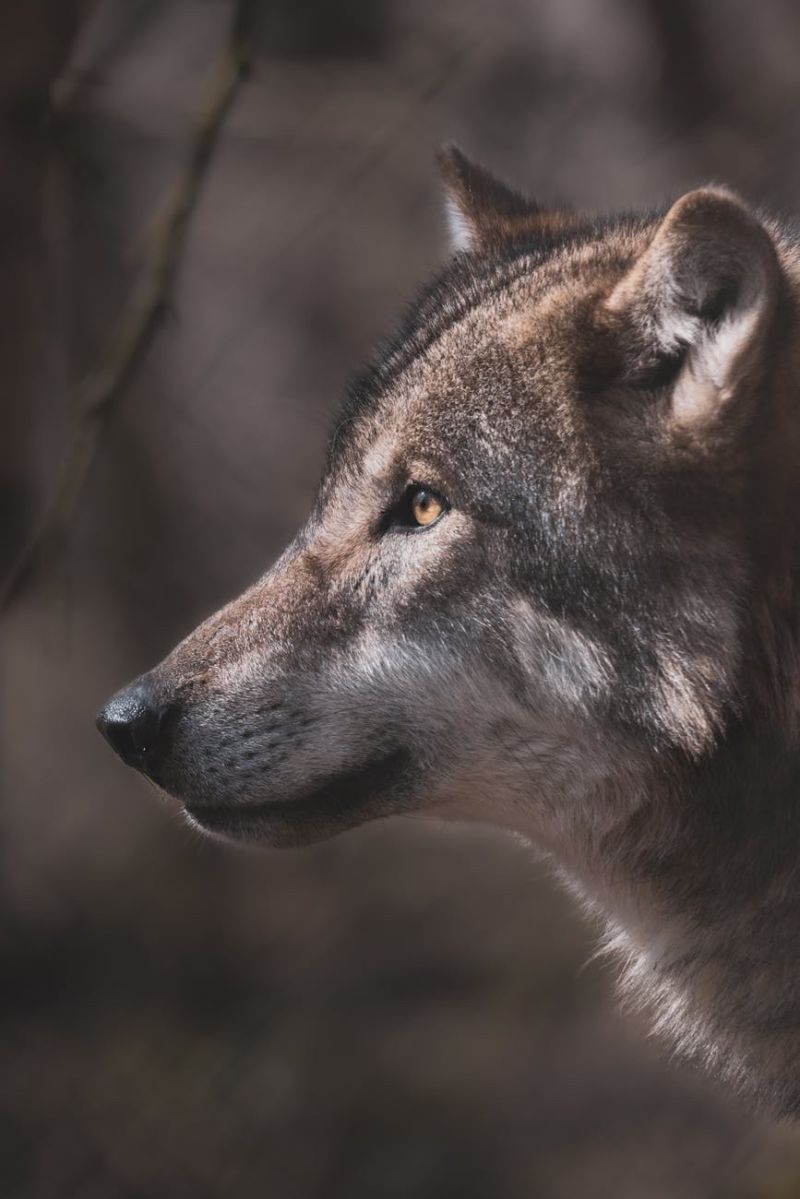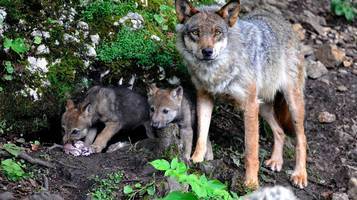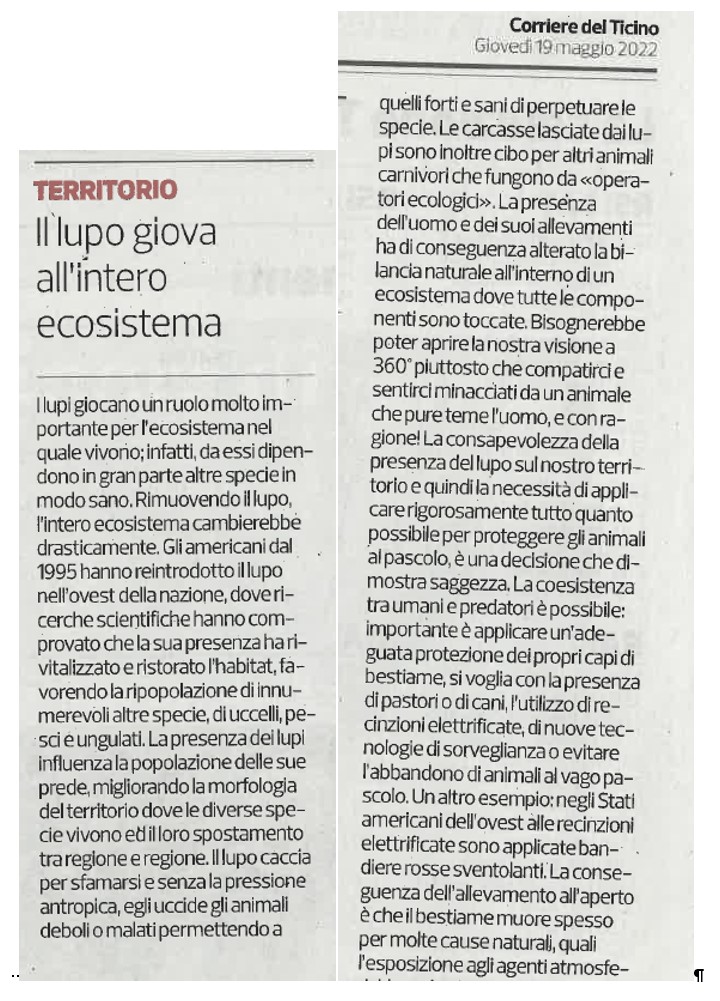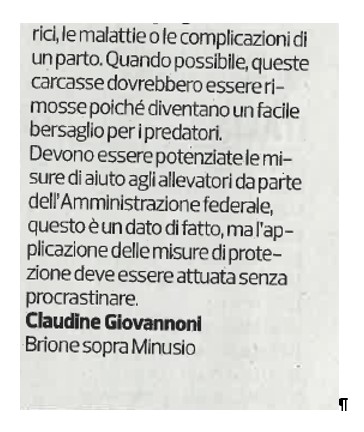
The presence of large predators (in this case I refer especially to the wolf) always have a disproportionate impact on public opinion, and this is caused by the loss of habit to live with them.
More than a century ago, in our territory wolves were present in the valleys and pre-Alpine areas and cohabitated with man. Studies have shown that the presence of large predators is necessary, the wolf has a “regulatory” effect to maintain a healthy ecosystem and protect biodiversity.
At the beginning of 1800 wolves and bears were exterminated in Switzerland… now they have returned and this has triggered “fantastic-collective” fixations linked to atavistic legends. Obviously, political pressures contrary to the presence of wolves in the Ticinese territory are high.
But it is possible to avoid to the least the attacks to the flocks, if one proceeds to “protect” the sheep through fences, with the presence of a shepherd (in the alpine pastures) and in general with the use of the protection dogs. (To already included these issues in my other see here, and here).
Last Sunday afternoon on the occasion of the “Festival della Natura vivere la biodiversità”, with WWF we visited Alberto Stern of Lostallo.
Alberto and his wife Elena are veterinarians, and as an accessory activity they manage their farm Creusc. They are dedicated to sheep breeding, breeding of Border Collie dogs and breeding of Mountain dogs of the Pyrenees. The latter are dogs for the protection of livestock while the Border Collies are sheepdogs used to lead the flock.
The Stern spouses began breeding Pyrenean Mountain dogs in 2003, in a national program for the protection of flocks; for more detailed information on the various awards received from dogs raised by Mr. Stern, see website.
La presenza dei grandi predatori (nel caso specifico mi riferisco specialmente al lupo) hanno sempre un impatto sproporzionato sull’opinione pubblica, e questo è causato dalla perdita dell’abitudine a convivere con loro.
Più di un secolo or sono, nel nostro territorio i lupi erano presenti nelle valli e zone prealpine e coabitavano con l’uomo. Gli studi hanno comprovato che la presenza dei grandi predatori è necessaria, il lupo ha un effetto “regolatore” onde mantenere un ecosistema sano e tutelare la biodiversità.
All’inizio del 1800 lupi ed orsi sono stati sterminati in Svizzera… ora sono ritornati e ciò ha scatenato fissazioni “fantastico-collettive” legate a leggende ataviche. Ovviamente, le pressioni politiche contrarie alla presenza dei lupi sul territorio Ticinese, è elevata.
Ma è possibile evitare al minimo gli attacchi alle greggi, se si procede a “proteggere” gli ovini per mezzo di recinzioni, con la presenza di un pastore (nei pascoli alpini) e in generale con l’utilizzo dei cani da protezione. (To già inserito queste tematiche in altri miei post post).
La scorsa domenica pomeriggio in occasione del “Festival della Natura vivere la biodiversità”, con il WWF abbiamo fatto visita ad Alberto Stern di Lostallo.
Alberto e la moglie Elena sono veterinari, e quale attività accessoria gestiscono la loro azienda agricola Creusc. Si dedicano all’allevamento ovino, all’allevamento di cani di razza Border Collie e all’allevamento di cani di razza Montagna dei Pirenei. Quest’ultimi sono cani da protezione del bestiame mentre i Border Collies sono cani da pastore impiegati per la conduzione del gregge.
I coniugi Stern hanno iniziato l’allevamento dei cani di razza Montagna dei Pirenei nel 2003, in seno ad un programma nazionale per la protezione delle greggi. Per ulteriori informazioni più dettagliate in merito ai vari premi ricevuti dai cani allevati dal signor Stern, vedi sito.















